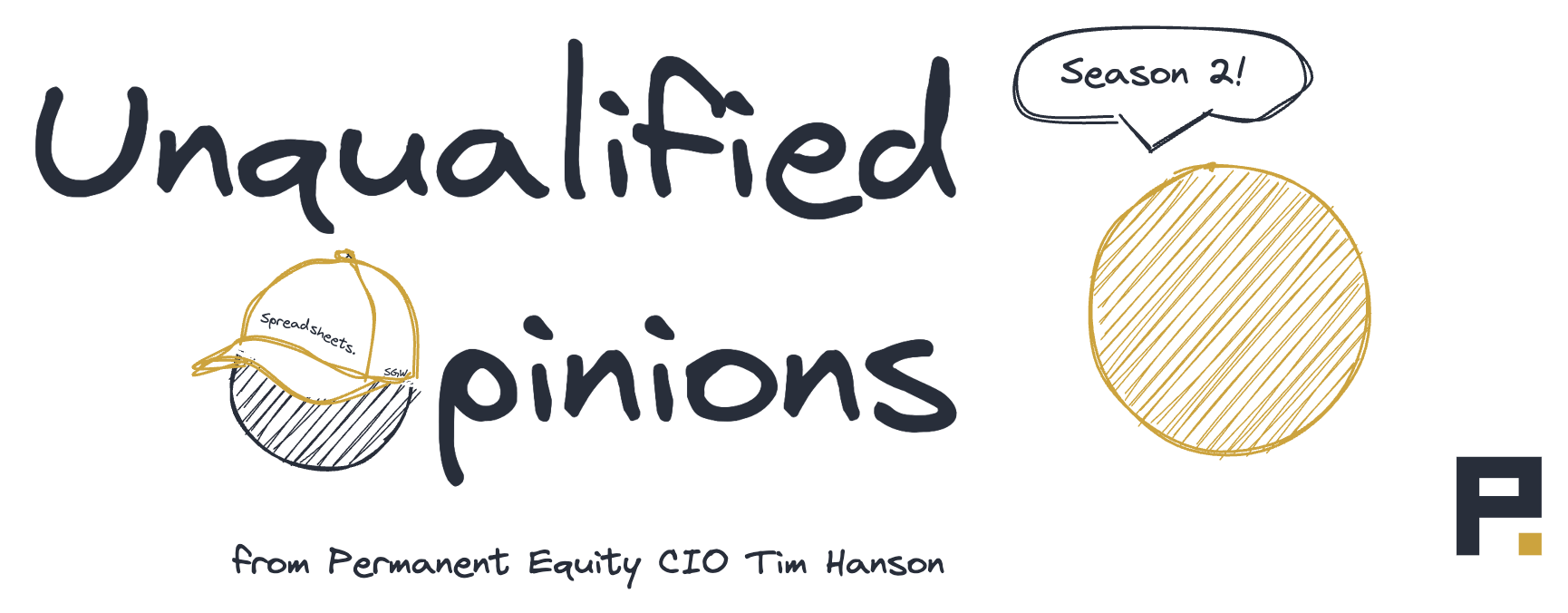When Great Doesn’t Feel Great
One of the benefits of writing daily about things that interest you is that other people read about the things that interest you and then curate the internet on your behalf by sending you things they think might interest you. And that, thanks to Michael Newton, is how I got my hands on 15 Ideas, Frameworks, and Lessons from 15 Years by Corey Hoffstein.
When he sent it over, Michael noted that “While Corey is focused on public financial securities and derivatives, many sections are universal to all forms of investing,” pointing explicitly to Idea 6: “It’s usually the unintended bets that blow you up.” And they’re right…Michael about the piece being worth a read and Corey about unintended bets, observing that the problem with unintended bets is that you don’t know you’re making them and therefore don’t take steps to stop them from going poorly.
My favorite idea, however, was number 5: The philosophical limits of diversification. Here Corey says that if you take away all risk, you shouldn’t expect any reward. And that’s correct. The more insurance you buy, the less money you make.
More importantly, he says that if you’re building a portfolio, you need to take risk, and further that when that risk plays out and your strategy stops performing, it’s a feature, not a bug! “Because if a strategy worked all the time, everyone would do it and it would stop working.”
It was serendipitous that Michael sent this when he did because I read it as one of our companies was struggling and facing very difficult decisions. I was, in other words, wrestling with an obvious example of our strategy not working and that was leading to self-doubt about the strategy.
Last season I wrote about a potential investor who decided not to invest in us because nothing really bad had happened to us yet. That view confused me at the time, but made sense as I thought about it. But now that something really bad was happening, it still didn’t feel great.
That anguish, though, is why there’s opportunity. If every lower middle market private equity deal went well, everyone would invest in lower middle market private equity deals and there would be no return to be had. Similarly, if something goes well every time you do it, it’s either (1) luck or (2) means you are leaving a lot on the table because you’re not doing enough. But if something goes well seven or eight times out of 10, or even just two or three depending on the magnitude of the potential reward, well, that’s actually impressive.
Corey sums up the idea by saying that in order for a strategy to work, it needs to be hard so it doesn’t get arbitraged away. So I guess this all means that our strategy is hard, which is great, except when all of those times when it’s hard because that never feels great.
– By Tim Hanson

